
War in 19: Ukrainian combat medic Sandra on Hospitallers, her love for people, and Sudzha
Sandra, 22, from Lviv, left her job abroad at 19 to become a combat medic, sharing her pro-Ukrainian views with Espreso
Sandra, tell us about your life before the invasion. What was it like and what did you do?
Life before the full-scale invasion was very interesting. I liked it. I studied in Poland and graduated with a degree in internal logistics and distribution and transport logistics. I arrived in Ukraine on February 23, 2022. In fact, I had a pretty busy life, often came to Ukraine. I had a lot of different activities outside of my studies in Ukraine and Poland. Life was blooming and fragrant. At the end of February, I was supposed to go to Germany, where I had a work contract.
It turned out that I came to my parents' house for a few days and found a full-scale invasion at home.
Before that moment, were you somehow connected with medicine?
No, there is absolutely nothing to do with medicine. The first time I saw a turnstile was in 2020. It was thanks to training at the national youth public organization Sokil. It was on the same level as showing a random person higher math. That is, it was a one-time event and nothing more.
I became a combat medic after several courses I took abroad. After that, there were a number of courses of different levels in Ukraine. I joined the Hospitallers by accident. A friend of mine, nicknamed Bambi, offered me to go through training with him and do a few rotations. I agreed, and it took more than a year.
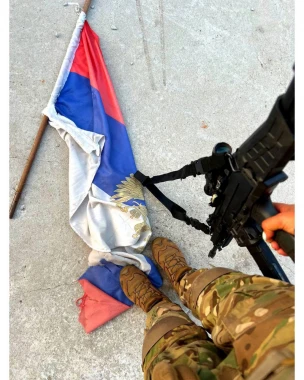
Photo: Sandra
What is your motivation to serve? Have you always had patriotic pro-Ukrainian views?
For me, this story is not exactly about patriotism as it is usually imagined. It's more about people. I love people very much. At the war, they need help more than anyone else. I simply could not sit somewhere abroad, knowing what is happening here and realizing that I could somehow save even one life, but it would be saved.
This can also be called a kind of awareness…
Most likely yes, although my parents don't like this version. I met a lot of good people in the army, or through the army and the war. You want to know that you have lived your life for a reason. And Ukrainian people are fighting for a reason. They deserve to be cared for, taken care of and feel safe.
You mentioned your parents. How did they react to your decision to join the Hospitallers?
At first, there was complete rejection. What mother would want her 19-year-old child to go to war? Now, there is probably some acceptance of the idea. We communicate well when there's time and opportunity. They help me in any way they can. They constantly worry about me - whether I'm okay, if I've eaten, drunk, or dressed warmly.
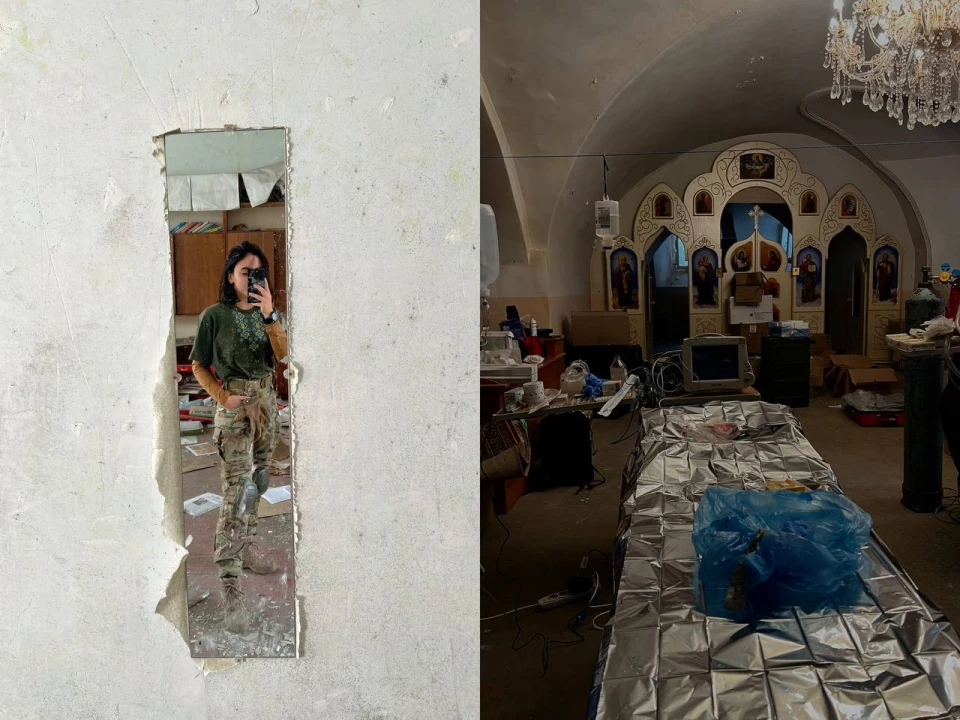
Photo: Sandra
What challenges do Hospitallers face and what was the hardest part of your service?
The hardest part for me is probably living in two worlds. When you're on duty, you try to give it your all. Then you return to civilian life, and you have to figure out how to pay rent for two or three weeks, handle your personal matters, and so on. This was one of the reasons I mobilized, because I realized I couldn’t fully commit to the work I was doing, as there were always secondary issues and concerns.
Many of my friends have been injured in various ways or have died. Despite having public figures like Ira Cheka, volunteers de jure don't exist. All the benefits and perks are inaccessible. The battalion tries hard to cover this, but since it's already the third year of the full-scale war, donations have significantly decreased, making it harder to manage every day.
So, if you're a volunteer, you're considered a civilian. Being injured means nothing in this context.
Now you are in Sudzha. How can you describe the city and the people who live here? How does Sudzha live now?
In general, the Kursk region was unexpected for me in terms of people. Most of those who stayed here are older people. Almost all of them are Ukrainian-speaking or partially Ukrainian-speaking. It was strange to see a Russian-speaking population in Sumy, but a mostly Ukrainian-speaking population in the Kursk region.
Now, there is fighting on the outskirts of Sudzha, the situation is changing, it is quite dynamic. Sudzha has become a kind of center where everyone “hung out” in the beginning, because there are quite a few buildings here, they are more or less suitable for housing or shelter. This allows us to do our work effectively.
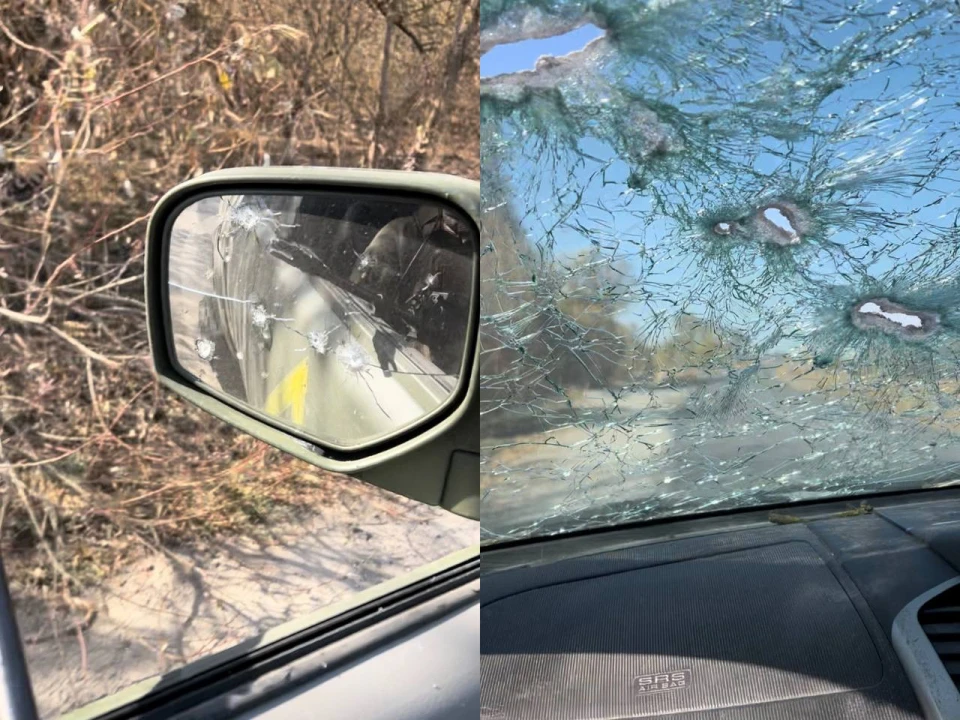
Photo: Kursk Operation/Sandra
There are almost no young locals left there, only older people who are in a lower social status, either having nowhere to go or not wanting to leave. They generally enjoy the "action" happening there. At times, these people act quite brazenly, even entering their neighbor's house or digging around in their garden.
Overall, many locals have half their relatives in Ukraine and half in Russia. Some were born in Ukraine and lived their whole lives in Russia, or vice versa.
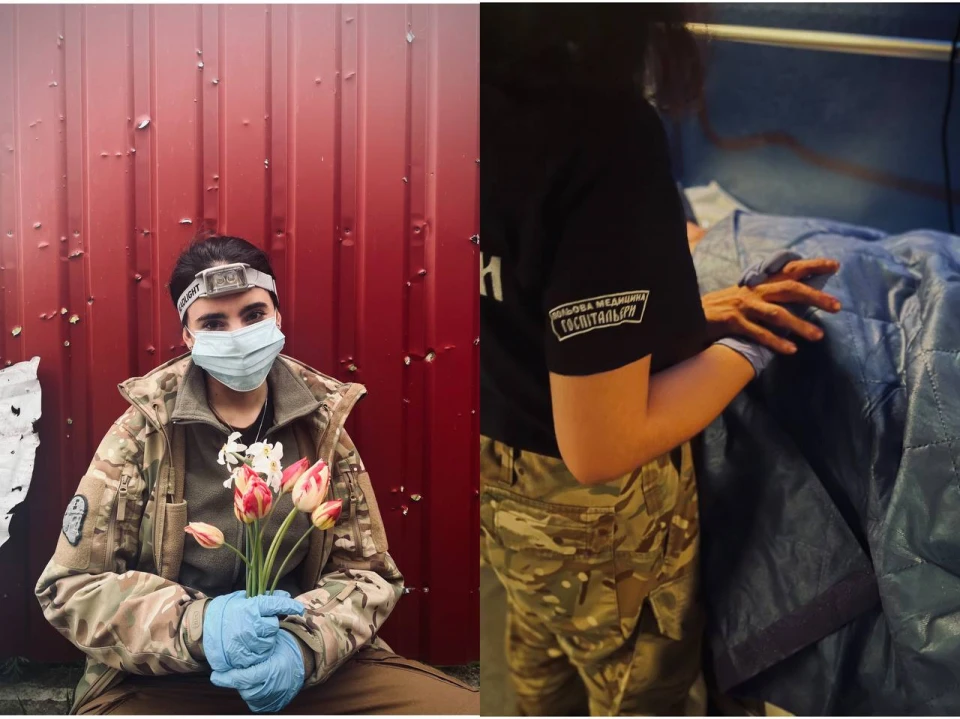
Photo: Sandra
I want to talk more about your pseudonym, "Sandra." How did it come about, does it have a special story or interpretation?
In fact, it's not really special. It appeared in my previous job. I worked in the Polish department. I had afro braids and the name Sandra just stuck to me.
When I went to the Hospitallers, it was obvious that there was no question of a call sign.
How did the Poles react to your decision to return to Ukraine at such a time?
They said that it was madness, an irrational decision, stupidity, and things like that. Their vision is that “smart people should not fight, but save their lives and develop the country later.”
But my opinion is that in order to develop something, the country must first be saved.
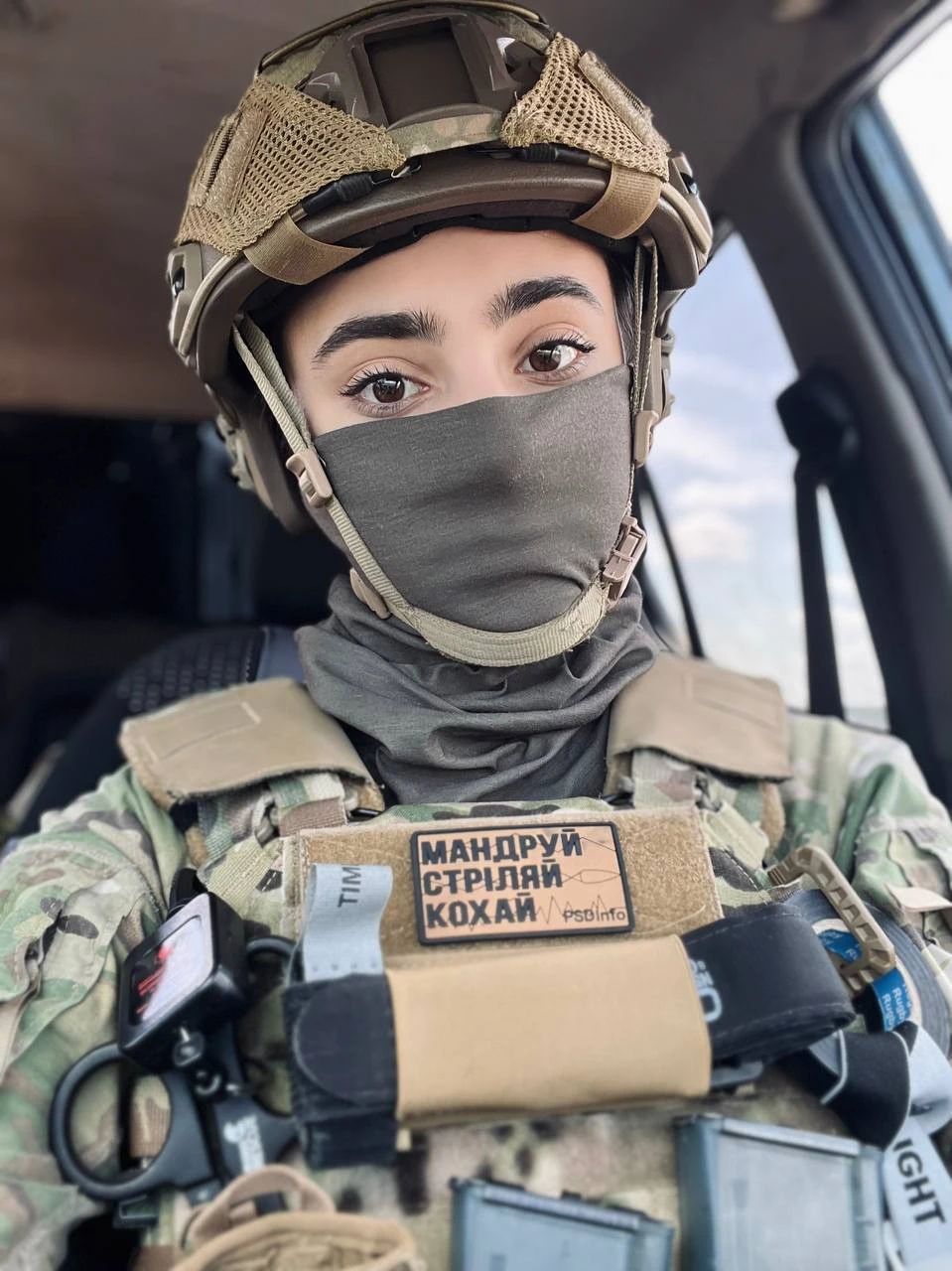
Photo: Sandra
Sandra, how do you see yourself after the war?
Most likely, it will not be the army. I really want to live a normal civilian life, to start a family. As strange as it may be to hear this in today's reality, I want peace of mind. And, of course, I really want all the families who are waiting to see their loved ones return.
- News














































